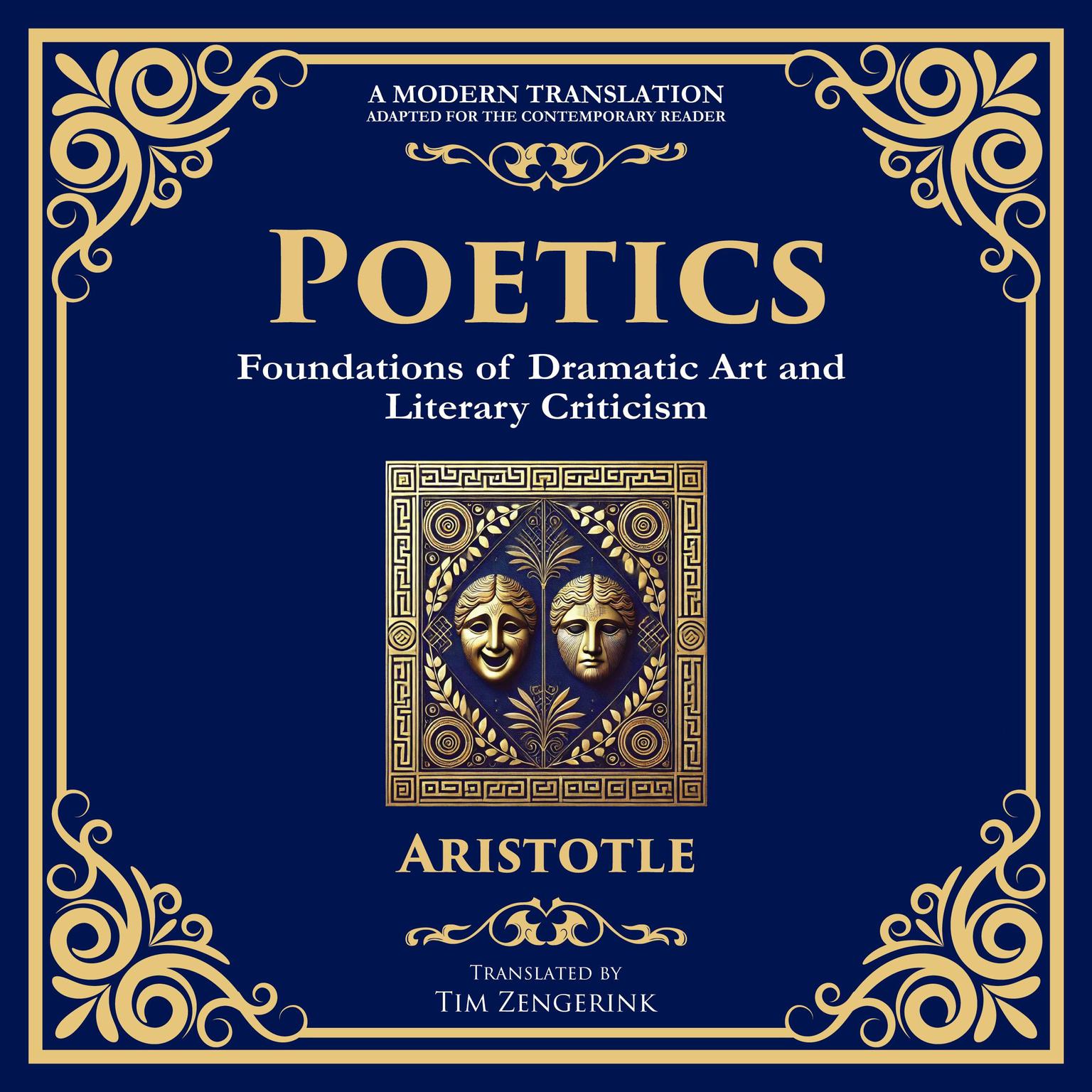 Play Audiobook Sample
Play Audiobook Sample
Poetics: The Foundations of Storytelling and Dramatic Theory Audiobook
 Play Audiobook Sample
Play Audiobook Sample
Quick Stats About this Audiobook
Total Audiobook Chapters:
Longest Chapter Length:
Shortest Chapter Length:
Average Chapter Length:
Audiobooks by this Author:
Publisher Description
What if you could master the art of storytelling, understand the essence of great drama, and unlock the timeless secrets behind compelling narratives?
Poetics brings you Aristotle’s groundbreaking exploration of storytelling, carefully translated and adapted for the modern reader.
Written over two thousand years ago, Poetics is the cornerstone of literary theory and dramatic structure. Aristotle examines the elements that make stories resonate—plot, character, conflict, and catharsis—revealing what separates a great story from a forgettable one. His insights continue to influence writers, filmmakers, playwrights, and creators across the world.
This is not just an ancient text—it’s a practical guide to understanding the foundations of storytelling and how to create narratives that captivate audiences. Whether you’re a writer, filmmaker, student, or lover of literature, Aristotle’s teachings offer essential tools for mastering your craft and appreciating great works of art.
What You’ll Discover in This Modern Translation:
- Aristotle’s principles for crafting compelling stories with powerful structure, plot, and themes.
- How characters and their struggles create emotional impact and drive engaging narratives.
- The emotional power of drama and how stories can move and transform their audience.
- Aristotle’s insights in clear, modern language that makes his teachings practical and relevant for today.
Imagine having the knowledge to craft engaging stories, understand the mechanics of dramatic tension, and appreciate the art behind great literature and film. This modern translation of Poetics delivers Aristotle’s insights in a practical format, empowering you to master the art of storytelling.
Get your copy today and begin your journey toward mastering the foundations of storytelling with Aristotle’s timeless wisdom.
Download and start listening now!
Poetics Listener Reviews
Be the first to write a review about this audiobook!
About the Authors
Aristotle (384–322 BC) was a Greek philosopher, scientist, and physician. As a young man, he became a student under Plato in Athens. In 342, he became the tutor of young Alexander the Great in Macedonia. After that, Aristotle returned to Athens to establish his own school and research institute, the Lyceum. His writings have profoundly affected the whole course of philosophy, from ancient times to the present.
Julius Caesar (100 BC–44 BC) was a military general and leading politician in the Roman republic. His family, the Julii, claimed descent from the ancient kings of Rome and from the goddess Venus. Caesar rapidly carved out an impressive political career, forging an alliance with Pompey and Crassus in 60 BC. The Civil War is Caesar’s attempt at an explanation of the war that changed the Roman world.
About Zeek Ring
James Allen (1864–1912) was a philosophical writer born in Leicester, England. He wrote numerous spiritual and inspirational books, including From Passion to Peace and The Eight Pillars of Prosperity. He is considered a pioneer of the self-help movement. His best-known work, As a Man Thinketh, has been in print since its publication in 1902.






















